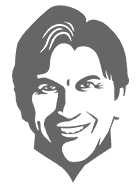Tuesday, January 11, 2022
Person of the Week: Tokayev
Next success for Putin’s neo-Soviet Union
By Wolfram Weimer
The uprising in Kazakhstan is brutally suppressed, and Presidents Tokayev and Putin declare victory over an “attempted coup”. Moscow is regaining its influence over Kazakhstan through the bloody power struggle. Not a good omen for Ukraine.
Kazakhstan’s President Kassym-Shomart Tokayev has put down the popular uprising in his country with Soviet brutality. According to official figures, “dozens of attackers have been eliminated”, at least 8,000 demonstrators have been arrested and more than 2,000 officially injured. Russian state media have now reported 164 deaths, including two children, citing the Kazakh Ministry of Health. In the streets of the major Kazakh cities there is a mixture of revolutionary intoxication, a hunted atmosphere and fear. The seemingly harmless president, who once started as a friendly reformer, turns out to be a tough as steel dictator. On state television he dropped his mask and sent the order to kill: “I gave the order to the security forces and the army to open fire without warning.”
Tokayev seems to get away with his demonstrative brutality and to have quickly decided the power struggle in this gigantic country for himself. He is hastily rebuilding the government. Tokayev has demonstratively emancipated himself from his former father, ex-President Nursultan Nazarbayev. The previous head of the secret service Karim Massimow and his deputy Marat Ossipow have been released and arrested. The chairmanship of the Security Council has been withdrawn from the ex-President, and the Deputy Secretary of the Security Council, Abdymomunov, is deprived of power. In addition to the social conflicts in the country, which were sparked by the rise in gas prices, there are also internal power struggles in the Kazakh leadership. There is talk of coup attempts.
As a result, Tokayev ruthlessly usurped power and one person helped him decisively: Vladimir Putin. The Russian President has given Tokayev massive political, military and intelligence support. On January 6, Putin’s troops landed in Almaty, Kazakhstan’s largest city. The Russian-led military alliance ODKB, the organization of the Collective Security Treaty, has officially intervened and sent soldiers – but above all sent the message that Moscow will not allow a revolution in Kazakhstan. It was clear to the military in Kazakhstan that they had to rally behind Tokayev. A report recorded for the Friedrich-Ebert-Stiftung: “After the ODKB soldiers had taken over strategic logistics points such as Almaty airport, which had previously been occupied by demonstrators, they moved into the city center and took part in the local army’s ‘special operation’ to stifle the protests. “
Putin has achieved a great success in terms of human rights, but in terms of power politics. From now on, the Kazakh President is his political puppet. At the same time, Russia’s influence on Kazakhstan has increased enormously. The power instrument of the ODKB (the alliance includes Russia and Kazakhstan as well as Armenia, Belarus, Kyrgyzstan and Tajikistan) has shown itself to the world public as a kind of Eurasian NATO under the leadership of Moscow. Putin has thus demonstrated his increase in global political power.
Putin is following a strategic plan to restore Soviet influence. Exactly 30 years after the official end of the Soviet Union, Putin is forging an informal neo-Soviet Union. The systematic chain of interventions stretches from Belarus to Kazakhstan, from Chechnya to Crimea, from Armenia to Georgia with the one goal of regaining control of the post-Soviet space.
The suppression of the democracy movement in Belarus and the support of the dictator Alexander Lukashenko there came about for the same strategic motive as the current intervention in Kazakhstan. This is bad news for Ukraine, on the border of which 100,000 armed Russian soldiers have deployed. Especially since a military analysis (pdf) of the Science and Politics Foundation warns: “With the growth in the military district ‘West’ and in the Crimea, the increased military presence in Abkhazia and South Ossetia and the joint air defense with Belarus and Armenia, Russia is building its position on the western border, but above all in the Black Sea region. “
Putin’s re-Sovietization is strengthened with the strategic victory in Kazakhstan. After the successful interventions in Syria (this, too, followed an old Soviet tradition), Belarus, Armenia and now Kazakhstan, the Russian President could feel encouraged to resolve the conflict over eastern Ukraine by force as well.
In the Ukraine, too, his military are already looking for old allies from the Soviet era. Kassym-Schomart Tokayev appears to them as a model. The Kazakh President, like Putin, is a child of the Soviet Union. Both are peers and started their careers in Soviet cadres in the 1970s and 1980s. Putin directly with the KGB, Tokayev with the Soviet Union’s foreign policy academy, the State Institute for International Relations. He then worked for the Foreign Ministry of the Soviet Union and was sent to the Soviet embassies in Singapore and China. In Beijing he was second and then first secretary of the Soviet embassy from 1985 to 1991 and thus closely integrated into the KGB network. That is exactly what has now helped him. The old Soviet comrades get together again – and take up arms. Ukraine has cause for concern.
